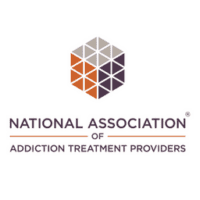Pros and Cons of Residential Treatment


During inpatient, or residential, treatment a person lives on-site and receives around-the-clock care. Residential programs vary widely and encompass everything from a few days in a medical detoxification facility to a year at a residential treatment center. For some teens and young adults, the high level of supervision and containment of inpatient care is necessary to ensure safety.
It is also important to recognize that inpatient services are never the final or only step in the recovery process, and that as a rule of thumb, it is best to find the least restrictive level of care at which a person can be safe and successful.
For someone who is a danger to self or others due to suicidal or homicidal ideation, or whose substance use has escalated to a point of imminently endangering their life, it may be necessary to have 24-7 supervision and/or round-the-clock medical care.
Withdrawal from certain substances on which a person has become physically dependent can be very dangerous. It may be necessary to medically supervise withdrawal from these substances.
Inpatient care may be appropriate for someone who is impaired enough to struggle with basic functioning and self-care, such as hygiene and taking medication.
Sometimes people choose an inpatient treatment program as a way to remove themselves from their typical stressors and temptations and to get a fresh perspective. This can be valuable when followed with ongoing outpatient care to maintain a change.
If a person frequently requires hospitalization, inpatient care can provide a more consistent, longer-term environment in which to stabilize.
If a person is experiencing symptoms such as psychosis or mania, they may need inpatient care or hospitalization until these symptoms lessen or resolve.
Many inpatient treatment programs are expensive and are only partially covered by insurance or not covered at all.
Families often do not realize that these programs are only the beginning of the road and must be followed up with supportive care such as outpatient programs.
People often appear more high-functioning in the context of an inpatient program in which they have learned the culture and expectations and are not faced with the challenges of the outside world. It is important to expect that they will struggle with the transition out of programs like this. Often such people will benefit from outpatient programs that help them translate their success in a residential program to success at home.
While these tips can help you get a sense of the pros and cons of inpatient treatment, it is important to get a professional opinion on the appropriate level of care for you or your teen’s unique situation. A comprehensive assessment that includes evaluating for both substance use and mental health concerns is the first step in making an informed decision.





